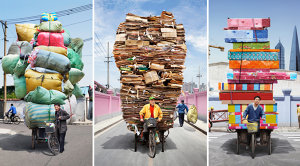 That simple spread of hazelnut and cocoa that everyone loves has a cross-continental pedigree, as emphasized in a recent report by the Organisation for Economic Co-operation and Development.
That simple spread of hazelnut and cocoa that everyone loves has a cross-continental pedigree, as emphasized in a recent report by the Organisation for Economic Co-operation and Development.Nutella combines vanilla flavoring from France, hazelnuts from Turkey, palm oil from Malaysia, sugar from Brazil and cocoa from Nigeria. The OECD used it as an example in a recent report to demonstrate global supply chains and it's gathered a lot of attention.
Nutella would not be possible without globalization. Like a famous essay said about the pencil, each jar contains the labor of thousands of people across the globe. There's no single location on earth that could ever make it without outside help.
Unlike other foods with a lot of ingredients, such as sour cream and salsa pork rinds, Nutella has a highborn reputation. It's artsy to like Nutella. The spread is borderline pretentious. That's very different from the low-status products that are usually associated with globalization like McDonald's food.
Globalization needs a new symbol that can engage people, and Nutella is a perfect choice. Globalization simply means the extension of human cooperation over international lines, instead of restricting it to the immediate area. Violent mobs and fringe speakers have given the word an unpleasant edge to the general public and not enough people name "globalization" as something they support.
Only a gullible fool would balk at spreading delicious Nutella across their bread. Nutella is the beautiful child of international cooperation, and people need to appreciate and understand that origin along with its captivating taste.
Read more...
